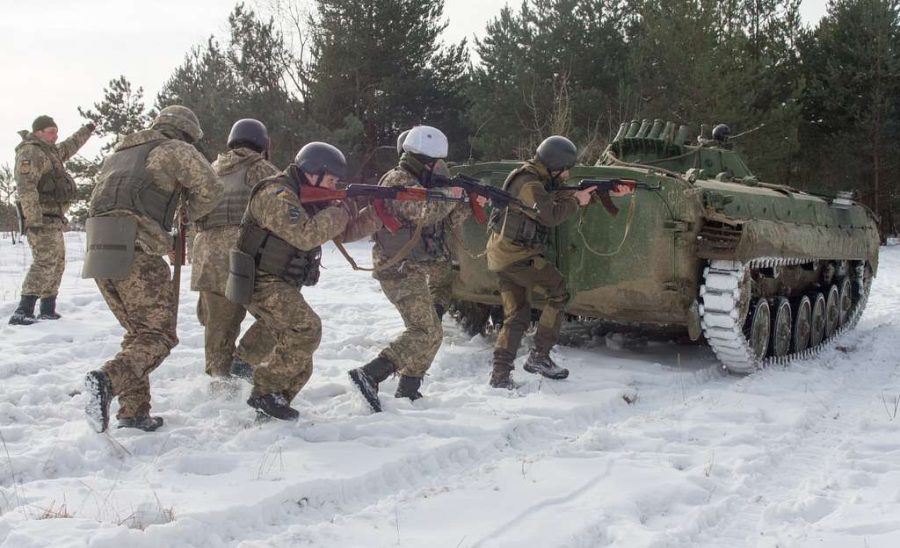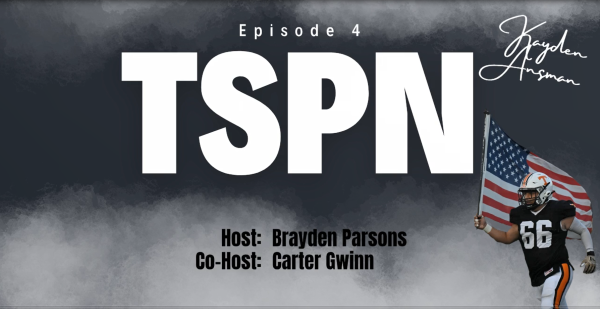Why We Should Care About War in Ukraine
Photo used by Creative Commons License from NARA & DVIDS Public Domain Archive
Ukrainian Soldiers assigned to 3rd Battalion, 14th Mechanized Brigade participates in a training exercise at the Yavoriv Combat Training Center in February 2018.
Everyone has heard bits about Ukraine over the past few days and weeks, but the first questions that come to many students’ minds are why does it matter? Why should we care?
Despite the fact that many Americans can’t find Ukraine on a map, the war that began this week between Russia and Ukraine will have real consequences in the United States and throughout the world. In fact, there are already serious economic, political, and moral consequences to this conflict.
First, the economic sanctions imposed on Russia by the United States and other NATO countries will impact people worldwide.
“Russia is a major producer of oil and natural gas, and the brewing geopolitical conflict has sent prices of both sharply higher in recent weeks. It is also the world’s largest wheat exporter, and is a major food supplier to Europe,” said Ana Swanson of the New York Times.
Russia’s invasion of Ukraine will affect the supply of gas and other natural resources. Supply will decrease as a result of the war and sanctions, but demand will remain constant for these commodities, and the overall effect is that prices will inevitably rise.
In fact, the New York Times is already reporting that oil prices have hit $105 a barrel and natural gas prices are soaring as Russia’s invasion is sending shock waves across the world.
Ukraine is also one of the largest agricultural producers in the world and is known as the breadbasket of Europe. Ukraine is rich in many natural resources including iron ore, coal, titanium ore, bauxite, and other minerals. Heavy industry in Ukraine produces cars, trucks, locomotives and freight cars, ships, turbines, and generators.
Therefore disruption of Ukraine’s exports and industries will have economic consequences across the world economy.
This means that the effects of the war in Ukraine will directly affect the American consumer.
In regards to the political atmosphere surrounding the invasion of Ukraine, a response by the United States and other NATO countries will inevitably lead to nationalism across the globe.
According to Anja Jakobi, the United States has pulled away multilateral actions in recent years, but this conflict has strengthened NATO and is pulling the US away from isolationism.
The political effects are clear. America has been forced to engage in international, multilateral intervention which means that the future political atmosphere might include changes to international policy.
The socio-political effects are less clear. However, historical examples of America during wartime (even if we weren’t fighting in the war) often spark an increase in nationalism and ethnocentrism which made America less inviting to legal immigrants and the immigrants of people from the warring country.
Finally, the moral dissent that any war causes is always an issue for the countries involved in reconciliation.
According to the Council of Foreign Relations, the casualties of the Russian-Ukrainian conflict are already estimated to be 13,000, and the number of displaced people is estimated to be 1.5 million. That’s before Russia’s full-scale invasion which began this morning.
The human suffering that is likely from this war is a tragedy we should all feel.
The importance of empathy during wartime cannot be stressed enough because the civilian men, women, and children who are all crying for help should have their voices heard.

Mario is a Senior at Tyrone Area High school. If you were to see Mario in the hallway you would first notice his messy hair which wouldn't look out of...













John • Feb 24, 2022 at 6:44 pm
Unfortunately son the failures of the biden administration have already had this country on an economic downturn right from the start. If you’re worried about the price of oil now, I can’t image you were buying gas in the last two years. The inflation we’re seeing is not because of the Ukraine invasion.
Additionally, there is nothing wrong with nationalism, there wouldn’t be a united nationalism effort anyway as one side of the political isle hates America, this being most of the prominent democrats in office.